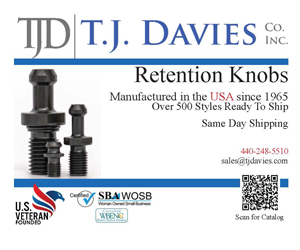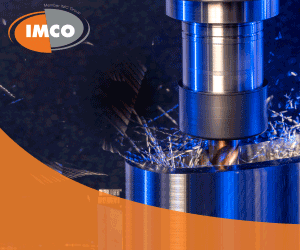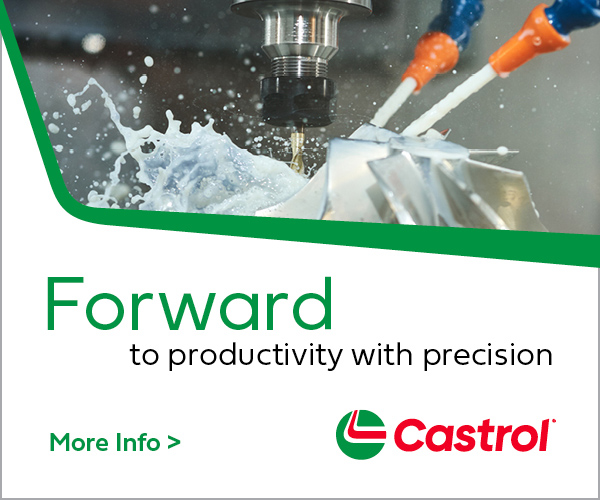Issued by Birmingham City University, Press Office
Students in Birmingham, U.K., are being challenged to showcase the potential uses of magnesium within the aerospace sector as part of a competition being set by Birmingham City University and Meridian, a producer of magnesium components.
At 1.8g/cm³, magnesium is the lightest of all structural materials, the eighth most abundant chemical element in the earth’s crust and is 100 per cent recyclable.
However, misconceptions surrounding the element’s properties have seen a historical aversion to designing products with magnesium when compared to less sustainable and heavier metals.
The competition being set by the partners aims to alter these perceptions with an interdisciplinary art installation designed by students that will be showcased to experts at the University, Meridian and the International Magnesium Association, who are also supporting the project. If the winning prototype inspires further investment, it is hoped a full-scale version will be crafted from magnesium and exhibited in a partner venue.
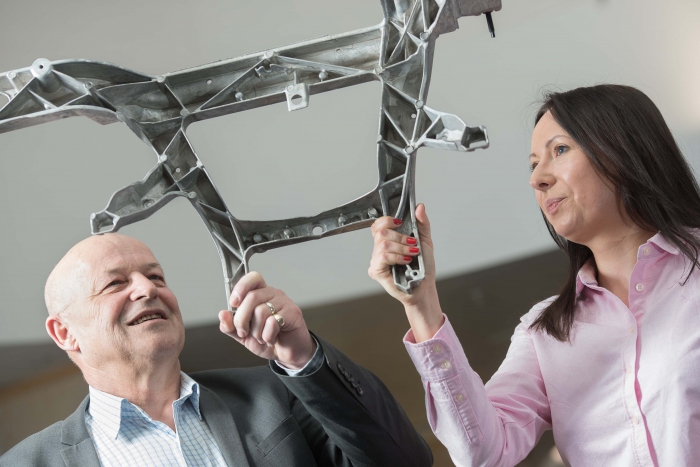
Stephen Brown, engineering manager at Meridian Lightweight Technologies United Kingdom, and Anna Kryzhanovska, a Birmingham City University student, examine a magnesium component. Photos courtesy of Birmingham City University
Makhan Singh, Development Manager at the Institute for Sustainable Futures, Birmingham City University, said: “A lot of people still believe magnesium catches fire easily. It doesn’t, but the myth still influences most people’s understanding, including engineers. However, while magnesium is not the simplest material to extinguish when alight – it continues to burn in nitrogen, carbon dioxide and water – its thermal conductivity makes it difficult to ignite in the first place.
“Magnesium is one of the best metals in terms of flammability, because it dissipates heat across its body so well, whereas steel, for example, localises the heat, so it can get very hot much more easily.”
The competition will also provide the students with an opportunity to work closely with professional artists, designers, engineers, industrial partners and global organisations on this project, with the potential of international exposure for the winning entry and runners-up.
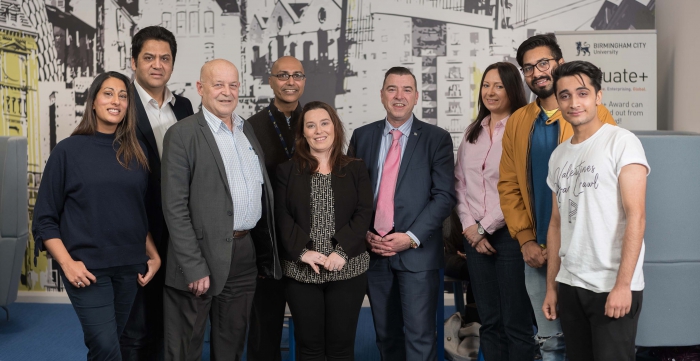
(Left to right): Harmeet Chagger-Khan, artist; Councillor Shafique Shah; Stephen Brown, engineering manager, Meridian Lightweight Technologies United Kingdom (MLTUK); Makhan Singh, development manager, Institute for Sustainable Futures, Birmingham City University; Kellie Easton, human resources manager, MLTUK; and Birmingham City University students.
Kellie Easton, H.R. manager, Meridian Lightweight Technologies United Kingdom (MLTUK), said: “Our Nottinghamshire plant produces around 5,000 net metric tons of die-cast products annually, serving automotive clients such as Daimler, Jaguar, Land Rover, BMW, Ford, Honda, Porsche and Volvo.
“However, a long-standing ban has been lifted for the use of high pressure magnesium die casting in aircraft seat construction, providing they meet strict performance standards, and we see this as an opportunity to work with aircraft seat manufacturers who may soon start using lightweight, new-generation magnesium alloys in their seats.
“This particular project with Birmingham City University, therefore, is pivotal in showcasing the wonderful benefits of magnesium to the aircraft industry by fusing engineering and the arts in a dynamic, creative and artistic manner.”
Birmingham City University and Meridian agreed a strategic partnership last year, which has seen the two organisations work together in the education, research and development of magnesium use. The partnership is placing fuel efficiency through weight savings and sustainability at its core, and last year they joined forces for an inaugural magnesium symposium held at the University’s City Centre Campus in Birmingham.
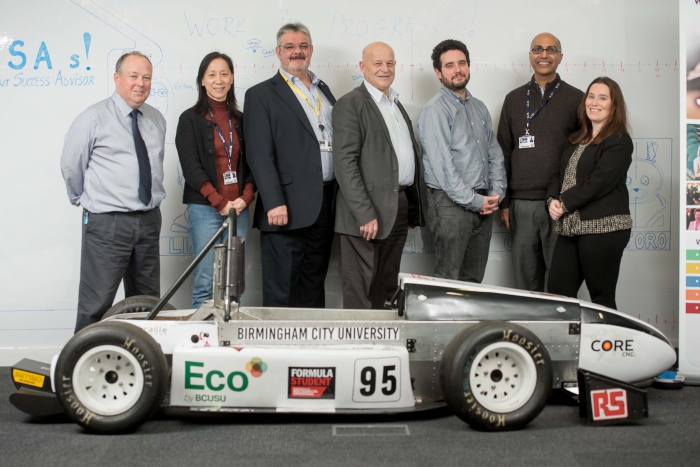
(Left to right): Mike Ward, professor of Micro-Electro-Mechanical Systems, Birmingham City University; Wenyan Wu, professor in Advanced System Engineering, Birmingham City University; Alan Pendry, associate professor, Birmingham City University; Stephen Brown, engineering manager, Meridian Lightweight Technologies United Kingdom (MLTUK); Dr. Abed Alaswad, Lecture, Birmingham City University; and Kellie Easton, H.R. manager, MLTUK, in front of the Birmingham City University Forumla Student car, which will incorporate magnesium components for the institution’s 2018 entry.
The competition was launched at Birmingham City University on Feb. 15 and individuals and teams from across the institution’s four faculties will have 2 months to finesse their ideas before submission in April.
In attendance at the launch was Professor Julian Beer, Deputy Vice-Chancellor, Birmingham City University; Stephen Brown, Engineering Manager and Kellie Easton, HR Manager, both from MLTUK; and Councillor Shafique Shah, as well as representatives from the University’s multidisciplinary Magnesium Innovation Group and participating students.
The project is being run in conjunction with the University’s Graduate+ Week (March 19-23). Graduate+ is an undergraduate scheme that looks to identify and develop students’ experience and build on their skills, enhancing and supporting their employment options when they leave university.
By embedding career-related skills into every degree course taught at Birmingham City University, Graduate+ is designed to provide students with a personalised range of activities, so as to build on their own professional profile. A Graduate+ Award also offers recognition and evidence of achievements gained from participating in the initiative.
Related Glossary Terms
- Rockwell hardness number ( HR)
Rockwell hardness number ( HR)
Number derived from the net increase in the depth of impression as the load on the indenter is increased from a fixed minor load to a major load and then returned to the minor load. The Rockwell hardness number is always quoted with a scale symbol representing the indenter, load and dial used. Rockwell A scale is used in connection with carbide cutting tools. Rockwell B and C scales are used in connection with workpiece materials.
- alloys
alloys
Substances having metallic properties and being composed of two or more chemical elements of which at least one is a metal.
- die casting
die casting
Casting process wherein molten metal is forced under high pressure into the cavity of a metal mold.
- land
land
Part of the tool body that remains after the flutes are cut.

 INDUSTRY NEWS
INDUSTRY NEWS